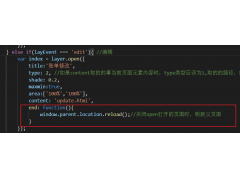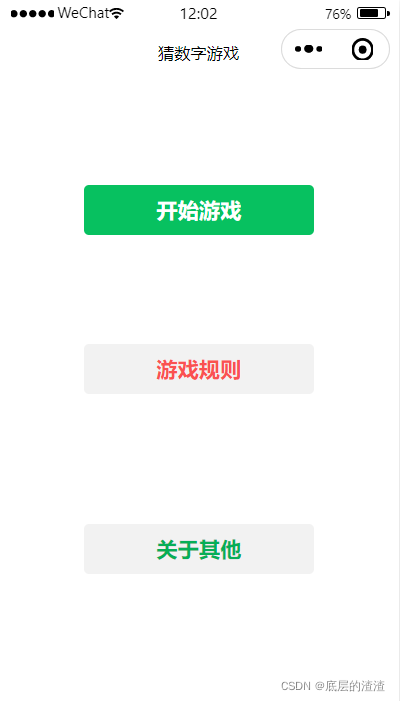Place div below another div with property display:grid(将div放置在另一个带有属性显示的div下方:栅格)
问题描述
我尝试使用diplay:grid将一个div放在另一个div之下时遇到了问题。该div被放置在另一个div的上面,而不是下面。
&qot;APP-BM-Payment-Card-Item&qot;是一个自定义角度组件。
HTML文件
//div wrapper
<div *ngIf="pageReady && myProfiles" class="ion-padding">
//div showing the cards stacked or collapsed
<div *ngIf="!inEditMode" class="card_container_stacked_main">
<app-bm-payment-card-item *ngFor="let card of myProfiles" [card]="card" [editMode]="inEditMode"
(onDeleteClick)="removeCard(card)" (onSelect)="selectCard(card)" (onEditClick)="editCardInfo(card)">
</app-bm-payment-card-item>
</div>
//div showing the cards expanded
<div *ngIf="inEditMode" class="card_container_expanded_main">
<app-bm-payment-card-item *ngFor="let card of myProfiles" [card]="card" [editMode]="inEditMode"
(onDeleteClick)="removeCard(card)" (onSelect)="selectCard(card)" (onEditClick)="editCardInfo(card)">
</app-bm-payment-card-item>
</div>
//div to be placed below the other one(s)
<div class="div">
TEXT
</div>
</div>
SCSS文件:
.card_container_stacked_main {
display:grid;
position: relative;
grid-auto-rows:30px; /* a fixed height to create an overflow */
}
.card_container_expanded_main {
position: relative;
max-width: 400px !important;
//margin-bottom: 15px;
}
.div {
position: relative;
}
推荐答案
有趣的问题,因为钱包中的卡数可以是1、2或N,并且grid-auto-rows和/或grid-template-rows需要在css中显式指定跟踪大小。
多种解决方案可用(节省网格使用)
#1简单但难看的那个
只需将margin-top: 200px;设置为文本div。仅当卡片堆叠时才应用此选项。
我不太喜欢此解决方案,因为它与其说是正确的设计,不如说是修复(&Q;)。
数据-lang="js"数据-隐藏="真"数据-控制台="假"数据-巴贝尔="假">function expandStackCards() {
var wrapper = document.getElementById("wrapper");
if (wrapper.classList.contains("stacked")) {
wrapper.classList.remove("stacked");
} else {
wrapper.classList.add("stacked");
}
}button {
width: 400px;
margin-bottom: 10px;
}
#wrapper {
display: grid;
grid-template-columns: 400px;
gap: 10px;
}
#wrapper.stacked {
grid-auto-rows: 30px;
gap: 0px;
}
.card {
width: 100%;
height: 200px;
background-color: grey;
border-radius: 20px;
padding: 6px 20px;
box-sizing: border-box;
}
.card span {
font-family: sans-serif;
text-transform: uppercase;
color: white;
}
.card.green {
background-color: green;
}
.card.blue {
background-color: blue;
}
.my-text {
margin: 10px;
}
.stacked .my-text {
margin-top: 200px;
}<button onclick="expandStackCards()">Expand / Stack</button>
<div id="wrapper" class="stacked">
<div class="card green"><span>Card #1</span></div>
<div class="card blue"><span>Card #2</span></div>
<div class="my-text">TEXT</div>
</div>或查找here the Codepen code
#2使用JavaScript检测并正确设置grid-auto-rows值
在我看来,最好的解决方案是没有margin技巧,只有清除网格css。
为此,您需要一点JS来检测钱包中的卡数,然后设置值。
数据-lang="js"数据-隐藏="真"数据-控制台="假"数据-巴贝尔="假">function stackedCards() {
var wrapper = document.querySelector('#wrapper.stacked');
if (wrapper) {
var num_cards = wrapper.querySelectorAll(':scope .card').length;
let style = getComputedStyle(wrapper);
row_height_str = style.gridAutoRows;
var new_grid_auto_rows = row_height_str.concat(' ').repeat(num_cards - 1);
new_grid_auto_rows = new_grid_auto_rows.concat('auto');
wrapper.style.gridAutoRows = new_grid_auto_rows;
}
}
// This function is only for the DEMO button
function expandStackCards() {
var wrapper = document.getElementById("wrapper");
if (wrapper.classList.contains("stacked")) {
wrapper.classList.remove("stacked");
wrapper.style.removeProperty("grid-auto-rows");
} else {
wrapper.classList.add("stacked");
stackedCards();
}
}
stackedCards();button {
width: 400px;
margin-bottom: 10px;
}
#wrapper {
display: grid;
grid-template-columns: 400px;
gap: 10px;
}
#wrapper.stacked {
grid-auto-rows: 30px;
gap: 0px;
}
.card {
width: 100%;
height: 200px;
background-color: grey;
border-radius: 20px;
padding: 6px 20px;
box-sizing: border-box;
}
.card span {
font-family: sans-serif;
text-transform: uppercase;
color: white;
}
.card.green {
background-color: green;
}
.card.blue {
background-color: blue;
}
.my-text {
margin: 10px;
}<button onclick="expandStackCards()">Expand / Stack</button>
<div id="wrapper" class="stacked">
<div class="card green"><span>Card #1</span></div>
<div class="card blue"><span>Card #2</span></div>
<div class="my-text">TEXT</div>
</div>或查找here the Codepen code
#3使用JavaScript将类设置为#wrapper
您还可以使用JS来检测卡片的数量,然后将正确的类应用到网格(#wrapper)。
它有点像前面的解决方案,但没有通过JS应用CSS样式,当然,您需要在您的CSS文件中包含类似以下内容的内容:
.wallet-1-cards {
grid-auto-rows: auto;
}
.wallet-2-cards {
grid-auto-rows: 30px auto;
}
.wallet-3-cards {
grid-auto-rows: 30px 30px auto;
}
.wallet-4-cards {
grid-auto-rows: 30px 30px 30px auto;
}
// etc...
使用第三个解决方案,您可以避免在JS代码中使用css(您只将一个类设置为div),这是一个不错的解决方案,但前提是您知道不可能拥有超过5或6张卡,因为用几十个无用的定义污染您的css不是一件好事。
这篇关于将div放置在另一个带有属性显示的div下方:栅格的文章就介绍到这了,希望我们推荐的答案对大家有所帮助,也希望大家多多支持编程学习网!
本文标题为:将div放置在另一个带有属性显示的div下方:栅格


- 失败的 Canvas 360 jquery 插件 2022-01-01
- 400或500级别的HTTP响应 2022-01-01
- Css:将嵌套元素定位在父元素边界之外一点 2022-09-07
- addEventListener 在 IE 11 中不起作用 2022-01-01
- CSS媒体查询(最大高度)不起作用,但为什么? 2022-01-01
- 如何使用 JSON 格式的 jQuery AJAX 从 .cfm 页面输出查 2022-01-01
- 使用RSelum从网站(报纸档案)中抓取多个网页 2022-09-06
- Flexslider 箭头未正确显示 2022-01-01
- Quasar 2+Apollo:错误:找不到ID为默认的Apollo客户端。如果您在组件设置之外,请使用ProvideApolloClient() 2022-01-01
- Fetch API 如何获取响应体? 2022-01-01





